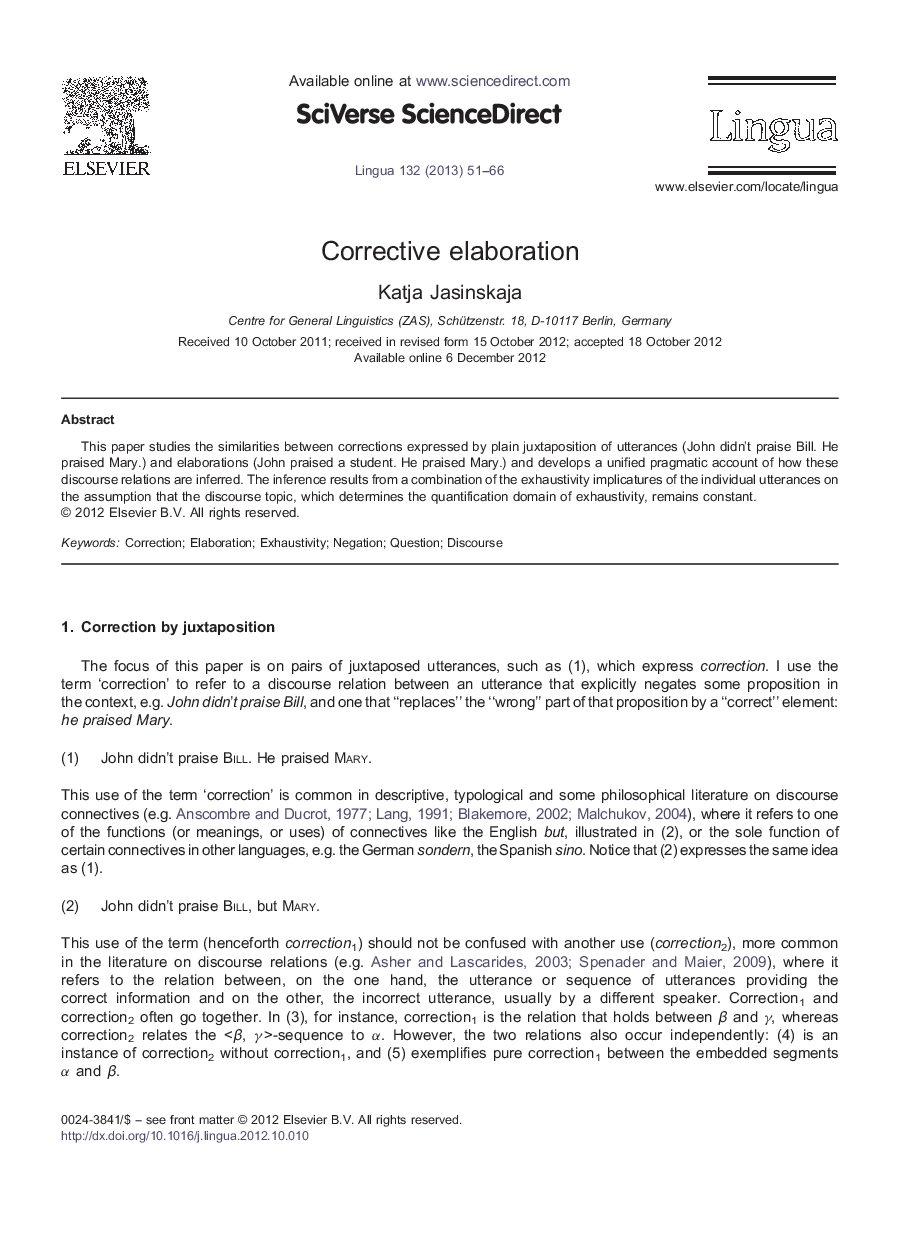| Article ID | Journal | Published Year | Pages | File Type |
|---|---|---|---|---|
| 935855 | Lingua | 2013 | 16 Pages |
This paper studies the similarities between corrections expressed by plain juxtaposition of utterances (John didn’t praise Bill. He praised Mary.) and elaborations (John praised a student. He praised Mary.) and develops a unified pragmatic account of how these discourse relations are inferred. The inference results from a combination of the exhaustivity implicatures of the individual utterances on the assumption that the discourse topic, which determines the quantification domain of exhaustivity, remains constant.
► The paper studies the phenomenon of juxtapositive correction. ► The paper argues for a unified treatment of juxtapositive correction and elaboration. ► Both relations are effects of exhaustive interpretation and topic continuity. ► The inference is modelled using a formally defined exhausitivity operator. ► The theory predicts universality of juxtapositive correction.
